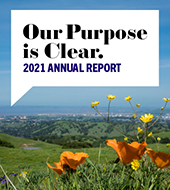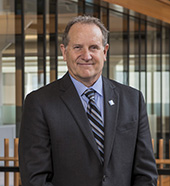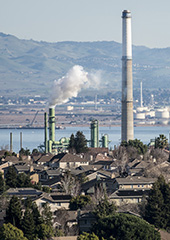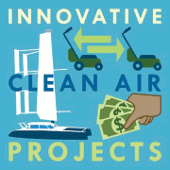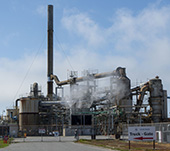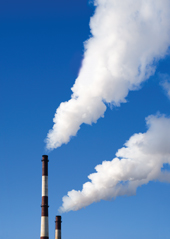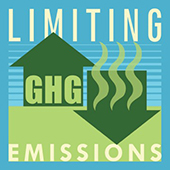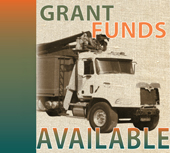|
|

|
|
|
|
May 2022 l Volume 2022-2
|
|
|
|
|
|
|
In this issue, you’ll find articles about the Air District’s 2021 Annual Report, the retirement of Air District Executive Officer Jack Broadbent, a Hearing Board abatement order to end violations at the Valero Benicia Refinery, and the Climate Tech Finance Program’s support for a clean energy storage company. Other articles cover a Hearing Board abatement order for faulty emissions monitoring at Chemtrade’s Richmond facility, Air District sponsorship of an Assembly Bill to raise air quality violation penalty limits for refineries, adoption of new CEQA thresholds of significance for evaluating land use projects and plans, and a Hearing Board case regarding Green Sage in Oakland. Current grant opportunities are also summarized.
|
|
|
|
|
|
|
|
|
|
|
|
|
|
“Our Purpose is Clear” 2021 Annual Report Highlights Air District’s Ongoing Work to Address Disparities in Air Quality
|
|
| | |
|
The Air District’s 2021 annual report highlights our achievements over the past year through dynamic, original video content and animated graphics. Despite the ongoing challenges of the pandemic, the Air District expanded partnerships in historically disadvantaged communities and tightened regulatory controls on industry. At the same time, we furthered our climate protection work to accelerate electrification and incentivize greenhouse gas reductions. Despite the increasing challenges of climate change, our purpose is clear: to protect and improve air quality and public health for all Bay Area residents.
Check out our 2021 accomplishments.
|
|
|
|
|
|
|
|
|
|
|
|
Jack Broadbent Retires as Air District Executive Officer
|
|
| | |
|
In March, the Air District’s Executive Officer Jack Broadbent announced his retirement after more than 18 years as head of the agency. Broadbent’s tenure as executive officer/air pollution control officer for the Air District began in 2003, and he has spent over 40 total years in public service. Under Mr. Broadbent’s leadership, the Air District developed and implemented numerous innovative strategies that helped to provide a healthy and improved breathing environment for Bay Area residents.
With decades of environmental management experience in both the public and private sectors, Mr. Broadbent joined the Air District after serving as air division director at the U.S. Environmental Protection Agency, Region IX. Prior to working at the EPA, Mr. Broadbent served as the deputy executive officer of the South Coast Air Quality Management District, where he had previous stints as director of planning and in other senior management positions. In the private sector, he served as corporate environmental programs manager for Hughes Aircraft Company.
Alexander “Sandy” Crockett, Air District assistant council, has assumed the role of interim executive officer until the Air District identifies a longer-term interim executive officer and, ultimately, a permanent replacement.
|
|
|
|
|
|
|
|
|
|
|
|
Hearing Board Approves Abatement Order to End Significant Air Quality Violations at Valero
|
|
| | |
|
In February, the Air District’s Hearing Board, a quasi-judicial independent body authorized under state law, approved an abatement order that required Valero Refining Co. to cease unreported emissions at its Benicia oil refinery as safely and expeditiously as possible. The abatement order went into effect immediately and established requirements and a schedule for Valero to design, engineer, permit and construct a project to stop these excess emissions. The order also provided conditions for Valero to minimize emissions during normal operations, pending the project’s completion.
During the interim period, Valero will continue to minimize the potential for pollutants to be emitted by continuing operation of internal piping that was installed to redirect hydrogen to a lower-pressure location.
The Hearing Board’s decisive action will protect the health and safety of those in the surrounding community. The Air District will next assess penalties that are commensurate with the seriousness of the violation and that will act as a deterrent against similar violations in the future.
|
|
|
|
|
|
|
|
|
|
|
|
Air District’s Climate Tech Finance Program Supports Energy Storage to Give Bay Area Clean Energy a Boost
|
|
| | |
|
The Air District has awarded a loan guarantee to UCAP Power, a provider of ultracapacitor systems that offer reliable cost-effective high-power energy storage, to support clean energy in the region. UCAP Power’s POWERBLoK ultracapacitor product stores energy and can replace current battery technologies, which may contain hazardous material and rare earth metals, in applications requiring dependable high power like wind turbines, generators and microgrids. The ultracapacitors have similar performance characteristics to batteries, but offer advantages that include fast charge/discharge capacity, low-temperature performance and comparatively longer useful lifetimes.
This loan guarantee is the most recent project under the Air District’s Climate Tech Finance program. In partnership with the California Infrastructure and Economic Development Bank and the Northern California Financial Development Corporation, the Climate Tech Finance team led a technology qualification, social equity impact, and greenhouse gas analysis that deemed UCAP Power eligible for a multimillion-dollar loan guarantee. This loan guarantee supported UCAP Power in securing a line of credit with East West Bank.
Their POWERBLoKs are made from activated carbon derived from coconut shells and are a safer and more sustainable alternative to traditional battery technologies, such as lead-acid batteries. The process of recycling traditional batteries can pose hazards, but POWERBLoK recycling is based on shredding and mild thermal treatment.
POWERBLoKs are drop-in retrofit units that significantly reduce money and labor involved in battery storage replacement. Their typical life span is 10-20 years, compared to 5 years for lead-acid batteries. This technology is predicted to displace 4 million lead-acid batteries in 40,000 wind turbines in the United States.
The core value of Climate Tech Finance is to support innovative climate projects. The Air District’s greenhouse gas analysis ensures that these new technologies will reduce short- and long-term greenhouse gas emissions.
The Climate Tech Finance loan guarantee will provide a credit enhancement that supports UCAP Power’s production of POWERBLoKs to fulfill purchase orders and to expand into additional markets. UCAP Power’s projects are estimated to reduce 680 metric tons of carbon dioxide equivalent emissions per year in California, by increasing the amount of wind turbine uptime and corresponding zero-emission electricity production.
|
|
|
|
|
|
|
|
|
|
|
|
Air District Files Hearing Board Case to End Air Quality Violations at Chemtrade
|
|
| | |
|
On April 12, the Air District brought an abatement order in front of the agency’s independent Hearing Board to correct air quality violations for faulty emissions monitoring at Chemtrade’s Richmond facility. Compliance monitoring at the plant is done by a Continuous Emissions Monitoring System. The air quality violations stemmed from an audit of this monitoring system, which led to the discovery of multiple violations and prompted an in-depth investigation. The Air District estimates that Chemtrade underreported sulfur dioxide emissions by an annual average of 64 tons, but stayed below their annual permit limit.
Air District inspectors identified various hardware and software misconfiguration issues with Chemtrade’s Continuous Emissions Monitoring System, which resulted in unreliable measurement and reporting of sulfur dioxide data at the facility. Chemtrade purchased the facility in 2014 and the Air District believes these issues predate the transfer of ownership.
Pursuant to the abatement order, Chemtrade was required to come into compliance by April 15 and conduct source testing by May 2.
Abatement orders and cases brought before the Hearing Board allow for transparency, as facts and evidence are presented in an open forum that provides an opportunity for public involvement.
|
|
|
|
|
|
|
|
|
|
|
|
Air District Sponsors AB 1897 to Increase Refinery Penalties and Deter Air Quality Violations
|
|
| | |
|
In February, the Air District announced its sponsorship of AB 1897, a bill introduced by Assemblymember Buffy Wicks to increase the penalty ceiling for refinery violations of air quality regulations. AB 1897 increases the civil penalty ceiling for violations of state or local air quality rules, regulations and permit conditions at refineries from $10,000 to $30,000, if the violation results in severe disruption to the community, if the discharge contains toxic air contaminants, and if 25 or more people are exposed to the discharge.
The civil penalty ceiling would be raised to $100,000 for subsequent violations within a twelve-month period.
In the Bay Area, refineries are some of the largest sources of criteria pollutants and toxic air contaminants. Overall compliance with air quality permit requirements at the five Bay Area refineries has declined in recent years, with significant increases in flaring events, Title V permit condition deviations and Notices of Violation. Past refinery flaring events have resulted in shelter-in-place notifications, school closures and increased emergency room visits for residents living in surrounding communities.
|
|
|
|
|
|
|
|
|
|
|
|
Air District Board Adopts New CEQA Thresholds of Significance
|
|
| | |
|
In April, the Air District’s Board of Directors adopted staff-recommended California Environmental Quality Act Thresholds of Significance for Evaluating Climate Impacts from Land Use Projects and Plans and an accompanying Justification Report. CEQA Thresholds of Significance for Evaluating Land Use Projects and Plans are used to determine whether a proposed project will have a significant impact on climate change in the Bay Area. Using the thresholds of significance to assess projects and plans for greenhouse gas, or GHG, emissions helps the Bay Area make meaningful progress toward reducing GHG emissions and establishes consistency with the state’s GHG climate reduction targets.
The Justification Report provides the substantial evidence needed by Lead Agencies to support the use of the thresholds to make significance determinations, and it is now available on the Air District’s website.
Updated CEQA Guidelines on how to evaluate climate impacts for projects and plans for these thresholds of significance will be posted soon on the CEQA Thresholds and Guidelines web page.
|
|
|
|
|
|
|
|
|
|
|
|
Air District Seeks to Shut Down Diesel Generators at Green Sage Cannabis Facilities in Oakland
|
|
| | |
|
In April, the Air District requested that its independent Hearing Board issue an abatement order to shut down nine diesel generators at the Green Sage cannabis facilities in East Oakland. The Air District issued a Notice of Violation to Green Sage in February for operating the generators without a permit. If the Hearing Board approves the abatement order, Green Sage would be required to shut down the diesel generators immediately.
East Oakland experiences more air pollution than other parts of the Bay Area, and approval of the abatement order will help protect local residents and the community.
Bringing abatement orders and cases before the Hearing Board allows for transparency, as facts and evidence are presented in an open forum that provides an opportunity for public involvement. Once the hearing is scheduled, a link will be posted on the home page of the Air District’s website. The public can also sign up for Hearing Board updates on the Air District’s Sign Up for Information web page.
|
|
|
|
|
|
|
|
|
|
|
|
Air District Offers Millions in Grants
|
|
| | |
|
The Air District administers a number of grant funding programs that offer incentives for clean air projects. Grant Funding for Clean Air Projects
Grant programs for Bay Area businesses and public agencies:
- Heavy-Duty Mobile and Stationary Equipment Replacement and Zero-Emission Infrastructure Program
Over $60M* in funding is available for eligible projects that reduce toxic air emissions and ozone-forming pollutants through the scrap and replacement of older, high-polluting vehicles and equipment. Eligible project categories include but are not limited to upgrades or replacements of:
- Trucks, emergency vehicles, and transportation refrigeration units
- Transit buses, school buses and shuttles
- Off-road construction, industrial, and agricultural equipment, for example: dozers, forklifts, tractors, ag pumps, and portable engines
- Off-road port and freight equipment, including cargo handling equipment and airport ground support equipment
- Marine vessel engines and locomotives
- Refueling infrastructure that supports zero-emission vehicles, including battery-electric and hydrogen fuel-cell vehicles
This program will be temporarily closing in late spring 2022 and re-opening in mid-2022. At least 50 percent of program funds must be awarded to projects that operate in or that benefit low-income areas and areas that are most highly impacted by air pollution, including the AB 617-identified communities of West Oakland, Richmond-San Pablo, East Oakland/San Leandro, Eastern San Francisco, Pittsburg-Bay Point area, San Jose, Tri-Valley area, and Vallejo. Apply at www.baaqmd.gov/moyer.
*Available funding is based on the Air District’s current best estimate for availability through mid-2022 and will be updated accordingly as funds are awarded and new funding sources are secured. Projects are funded by the Carl Moyer Program, Community Health Protection Program, Transportation Fund for Clean Air, Mobile Source Incentive Fund, and Funding Agricultural Replacement Measures for Emission Reductions (FARMER) program.
- Goods Movement Emission Reduction Program (Opening Soon) – Up to $20 million will be available for non-truck projects that will replace (upgrade) vehicles and equipment used in freight movement activities in California. Eligible equipment includes cargo-handling equipment such as forklifts, yard trucks, and rubber-tired gantry cranes (RTG); transportation refrigeration units (TRU); insulated cold-storage trailers at retail grocery stores; freight locomotives; and shore power systems. Funding is also available for hydrogen fueling/battery-charging infrastructure, and electric power plug to assist owners of freight movement equipment to incorporate zero- or near-zero-emissions equipment into their fleet and for berth electrification and emissions capture and control equipment at ports. Solicitation is scheduled to open in Spring of 2022. Visit the program web pages at www.baaqmd.gov/goods and sign up to the notification list to receive program updates.
- Loan Guarantees and Low-Interest Financing: Climate Tech Finance Program – Subsidized financing is available to support the development and purchase of climate technologies. Companies can apply for loan guarantees of up to 90 percent to grow their business. Public facilities can apply for loans up to $30 million over 30 years. This program is open and accepting applications now. www.baaqmd.gov/ctf
- Charge! Program for electric vehicle (EV) charging projects is not currently accepting new applications. Charge! is a grant program that helps offset up to 85 percent of the cost of purchasing and installing new publicly available charging stations at qualifying facilities and private charging stations to serve multi-unit dwelling locations within the Air District’s jurisdiction. www.baaqmd.gov/charge
Grant programs available to Bay Area residents:
- Passenger Car and Light-Duty Truck Retirement – The Vehicle Buy Back Program pays Bay Area residents $1,200 per vehicle to turn in their operable, registered, model year 1997 and older passenger car or light-duty truck for scrapping. www.baaqmd.gov/vbb
- OPEN NOW! Clean Cars for All Program, Light-Duty Vehicle Replacement – The Clean Cars for All Program is open to all income-qualified Bay Area residents. The program provides varying incentives (up to $9,500) to retire older, high-polluting vehicles and replace them with newer, cleaner vehicles or with alternative transportation options (e.g. Clipper card). Eligible vehicles for purchase or lease include hybrid electric, plug-in hybrid, or electric vehicles. www.baaqmd.gov/cleancarsforall
Other state-wide grant programs funded by Volkswagen NOx Mitigation Trust (only the first is administered by the Bay Area Air District):
- VW Zero-Emission Freight and Marine Program Opening Soon – The Volkswagen Environmental Mitigation Trust funding will be available statewide for projects that do one or more of the following:
- scrap combustion-based airport ground support equipment and replace with all-electric,
- scrap combustion-based heavy-lift forklifts (>8,000 lbs of lift capacity) and replace with all-electric,
- scrap combustion-based port cargo handling equipment and replace with all-electric,
- scrap combustion-based ferry, tugboat, or towboat engines and replace with all-electric, and/or
- install portside shore power systems at berths for use by unregulated oceangoing vessels.
At least 75 percent of funding will be awarded to projects that reduce emissions in California’s disadvantaged and low-income communities. Solicitation is scheduled to open in Spring of 2022. Visit Program website at https://www.californiavwtrust.org/zero-freight-marine/ and sign up to the notification list to receive program updates.
- VW Combustion Freight and Marine Projects – Funding is available statewide to accelerate the replacement of older, higher polluting diesel engines with the cleanest available technologies. Equipment eligible for replacement includes Class 7 and 8 freight trucks (including waste haulers, dump trucks, and concrete mixers) or their engines (2012 model year and older) that are compliant with current regulations; freight switcher locomotives or their engines (pre-Tier 1); and ferry, tugboat, and towboat engines (pre-Tier 3). This solicitation is open and accepting applications on a first-come, first-served basis until all funds are fully allocated. https://xappprod.aqmd.gov/vw/combustion.html
- VW Zero-Emission Transit and Shuttle Buses – Funding is available to owners of bus fleets that operate in California to support early adoption of zero-emission bus technologies to reduce harmful exposure for the state’s most sensitive populations. This program is administered by the San Joaquin Valley Air Pollution Control District. The zero-emission school bus bin is now oversubscribed. This solicitation is open and accepting applications for transit and shuttle buses on a first-come, first-served basis. http://vwbusmoney.valleyair.org/
|
|
|
|
|
|
|
|
|
|


